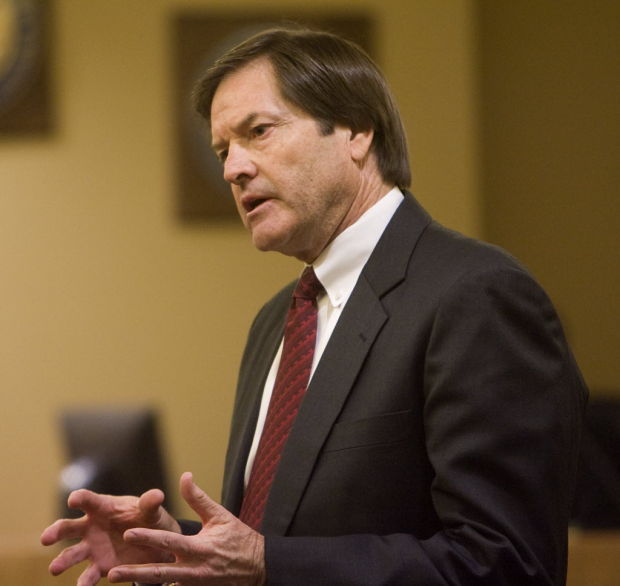The Pima County Attorney’s Office has formed a special team to investigate possible wrongful convictions, in a proactive acknowledgment of the growing list of criminal convictions nationwide that have been overturned due to new technology or new evidence being found.
Veteran Deputy Pima County Attorney Rick Unklesbay will head up the Conviction Integrity Unit.
“Nobody wants somebody who didn’t commit a crime to be behind bars for it,” Unklesbay said.
The unit plans to investigate cases in which a defendant can back a claim of innocence with new evidence. Cases in which a convicted person seeks exoneration as result of an error made at trial will not be reviewed.
Unklesbay said the County Attorney’s Office has investigated such claims in the past, but a decision was made to consolidate investigations into one unit.
“There’s no reason for us to be randomly assigning these cases,” he said.
The move mimics efforts by prosecutors in other parts of the country who have created similar formalized units to investigate past convictions, most notably in Dallas, where the first such group was started in 2007.
In Arizona, 15 defendants have been exonerated since 1989, according to the National Registry of Exonerations, operated by the University of Michigan Law School and the Northwestern University Law School.
Nationwide, the group counts 1,441 exonerations since 1989.
The majority of Arizona exonerations, seven in all, were the result of perjury or false accusations. DNA evidence played a role three of the Arizona cases.
Defendants in six Arizona exonerations were convicted in Pima County.
Each month in Pima County Superior Court, there can be more than 500 felony defendants sentenced, with as many as 200 of those sent to prison.
“It speaks well of the County Attorney’s Office to put personnel and resources into this area,” said Andy Silverman, University of Arizona law professor and faculty adviser with the Arizona Justice Project.
He was unsure how the Justice Project would interact with the new unit, whether it would refer cases to the county or pursue exonerations on its own, as it has in the past.
For instance, the group was behind the recent release of Louis Taylor, the man sent to prison in 1972 for the tragic Pioneer Hotel fire in downtown Tucson.
Taylor was tried for the 1970 fire, which killed 29 people. His original conviction was set aside in 2013 as part of a new plea agreement that reduced his sentence to the more than 40 years he spent locked up.
While Taylor was never exonerated, Silverman believes he would have been.
Another Tucson defendant was exonerated in 2000.
Larry Youngblood was convicted of kidnapping and molesting a young boy in 1985.
Youngblood was convicted based on blood evidence and witness testimony. But he was later exonerated through DNA evidence.
After serving his prison sentence, Youngblood was rearrested for failing to register as a sex offender. It was that case the led to the DNA analysis, done on the sexual assault kit from the original case.
That analysis not only exonerated Youngblood, but also implicated the true culprit, who was incarcerated in Texas at the time. He was later sentenced to 24 years in prison in Arizona.
Pima County Public Defender Lori Lefferts also was pleased to learn that the county attorney would take the lead in investigating possible wrongful convictions.
“It takes great political courage for a prosecutor to acknowledge that our system is flawed and that innocent people can, and have been, wrongfully convicted and imprisoned,” Lefferts said in an email.
But Lefferts also cautioned that the new unit will be investigating cases of people its office previously tried.
“While Rick Unklesbay is highly regarded as a prosecutor and brings experience and a strong sense of fair play to the position, he is still a long-term insider of the Pima County Attorney’s Office,” she said. “An objective approach will be critical.”
Silverman said another potential conflict is that any exonerations could result in costly civil litigation.
Unklesbay recognizes there could be differences of opinion about the details of the investigations, but he noted a shared interest in seeing justice done.
“We have no interest in keeping someone in prison who doesn’t deserve to be there, he said. “That means we’ve failed in our jobs.”





